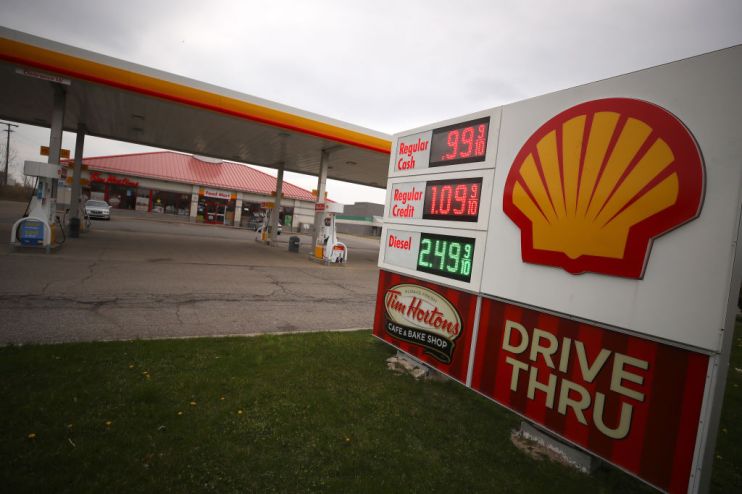Shell cuts dividend as earnings halve in first quarter

Oil giant Shell today reduced its dividend by 66 per cent after earnings fell by 46 per cent in the first quarter due to the coronavirus crisis.
The decision to reduce the dividend is the first time the firm has done so since World War Two, and means it has relinquished its position as the world’s largest dividend payer.
Shares in the blue-chip fell 4.5 per cent this morning on the back of the news.
The figures
Shell’s first quarter earnings attributable to shareholders were $2.9bn (£2.3bn), down 46 per cent from $5.3bn for the first quarter of 2019.
The firm swung to a $24m total loss in the first quarter, flipping from $6bn in the same period last year.
Due to the circumstances, the firm said it would reduce its dividend from 47 cents to 16 cents per share for the quarter.
In total, Shell paid out $3.5bn in dividends, and also continue its share buyback programme.
Since the launch of the programme, Shell has bought back almost $16bn in shares for cancellation.
Gearing at the end of the first quarter was 28.9 per cent, up from 26.5 per cent at the end of the same period last year.
Why it’s interesting
Oil firms have been among those worst affected by the coronavirus crisis, which has crashed global oil demand due to wide-ranging travel bans and factory closures.
Earlier in the quarter the Anglo-Dutch firm warned that it would take impairment charges of up to $800m due to the collapse in oil and gas prices.
It will also reduce spending to less than £20bn and suspend its extensive $25bn share buyback scheme in a bid to preserve cash through the ongoing crisis.
The firm stressed that its liquidity remained strong, announcing a new $12bn credit facility in addition to the $10bn credit line opened in December.
Together with cash and cash equivalents of $20bn, Shell’s available liquidity will rise from $30bn to more than $40bn.
Analysts were agreed that the historic move was a necessary one for the oil giant:
David Barclay of Brewin Dolphin said that though some shareholders would see the move as negative, cutting the dividend could “well prove to be the right step as Shell looks to strengthen its financial position and cut costs during a very difficult time.”
Kit Atkinson, head of capital markets at Link Group, said: “Cutting its dividend so deeply is prudent given the times we are in, and is an acceptance that years of trying to maintain such a high payout, even during periods when oil prices have been too low to generate profits for the group, is no longer sustainable.”
Removing the pressure to pay the divided, said Nicholas Hyett of Hargreaves Lansdown, means the group can “focus on the future and also secure the future of recently announced renewable energy investments”.
However, AJ Bell investment director Russ Mould said that the decision would affect over 160 funds in the UK, as well as many people’s pensions:
“Pensioners have relied on names such as Shell for a very long time in order to help pay the bills during retirement. They will be particularly devastated at the news that dividend cheques will be significantly smaller.
“While a cut is better than no dividend at all, many people thought Shell would never go down this path given its long track record of holding or raising the payment”.
What Shell said
Shell chairman Chad Holliday said: “Shareholder returns are a fundamental part of Shell’s financial framework.
“However, given the risk of a prolonged period of economic uncertainty, weaker commodity prices, higher volatility and uncertain demand outlook, the board believes that maintaining the current level of shareholder distributions is not prudent”.
More to follow.